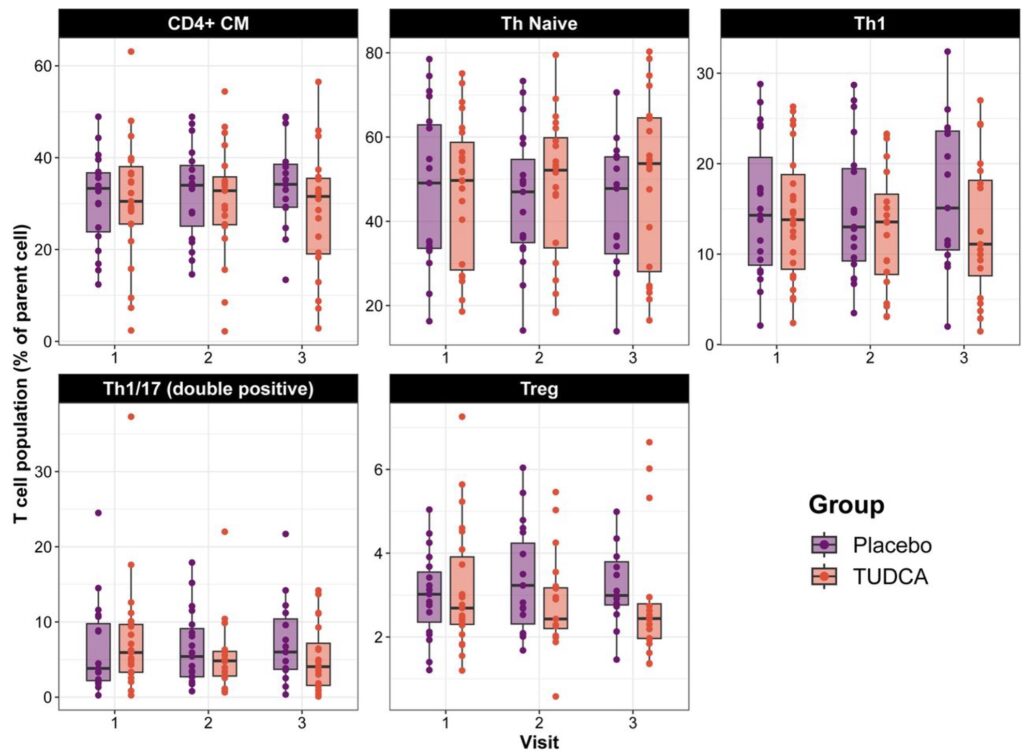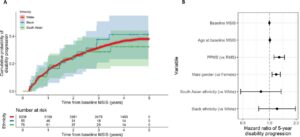Bile acid metabolites predict multiple sclerosis progression and supplementation is safe in progressive disease
Dimitrios Ladakis et al.
Johns Hopkins University School of Medicine

Background: People with progressive MS (PMS) have been shown to have to have lower levels of bile acid metabolites compared to relapsing remitting MS (RRMS). In animal models, supplementation with tauroursodeoxycholic acid (TUDCA), resulted in reduced inflammation and ameliorated disease severity.
This Study: In an observational cohort, higher primary bile acid levels at baseline predicted slower whole brain, brain substructure and specific retinal layer atrophy. A phase 1/2a RCT found that TUDCA supplementation was well tolerated and, while no significant differences were noted in clinical or fluid biomarker outcomes, central memory CD4+ and Th1/17 cells decreased, while CD4+ naïve cells increased in the TUDCA arm compared to placebo.
Bottom Line: These preliminary findings suggest that TUDCA supplementation may have the potential reduce neuroinflammation. Longer trials are warranted.




